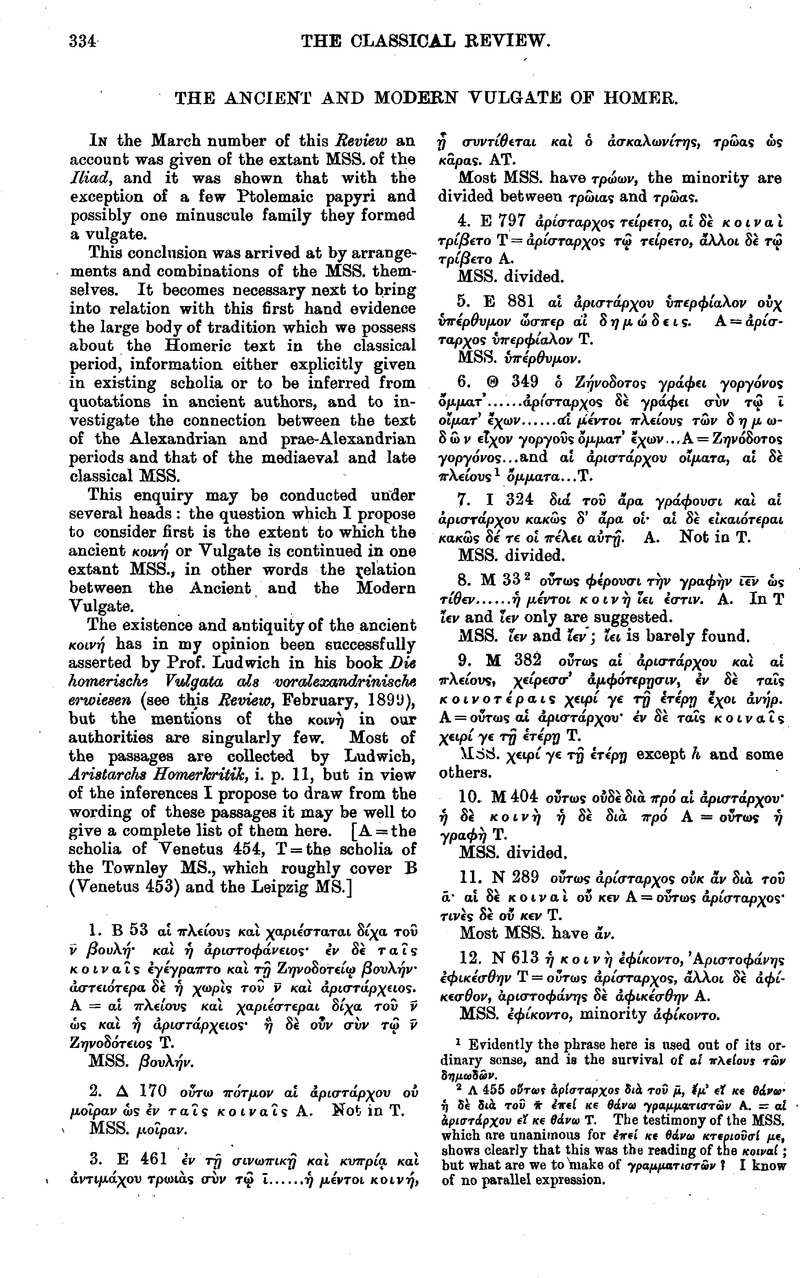No CrossRef data available.
Article contents
The Ancient and Modern Vulgate of Homer
Published online by Cambridge University Press: 27 October 2009
Abstract

- Type
- Original Contributions
- Information
- Copyright
- Copyright © The Classical Association 1899
References
page 334 note 1 Evidently the phrase here is used out of its ordinary sense, and is the survival of ![]()
![]() .
.
page 334 note 2 Λ 455 ![]() . The testimony of the MSS. which are unanimous for
. The testimony of the MSS. which are unanimous for ![]() , shows clearly that this was the reading of the κοιναl; but what are we to make of
, shows clearly that this was the reading of the κοιναl; but what are we to make of ![]() I know of no parallel expression.
I know of no parallel expression.
page 335 note 1 Corrupt.
page 336 note 1 It is further to be considered that in many double versions of scholia (A 298, 424, 553; r 99; E 231; Z 4, 121; H 171, 197; Θ 163; K 291, 341; λ 146, 439; M 142, 161, 283, 318; N 485, 705; O 307; T 114; φ 492; Ψ 548, 622) Ἀρσταρχος = Ἀρσταρχος κα α πλɛονς(or authorities by name). We may therefore assume that a certain number of passages under Has. are to be raised to I.
page 336 note 2 Agreements of Zenodotus with theκοιν are numerous under the heading IIb.; (A 434; B 53, 196; E 466; H 451; Θ 378; I 128, 564; A 219, 368, 437, 439; M 161, 340; N 423, 447, 449; Ξ 118, 208, 249, 322, 437; O 139, 459; II 188, 507; P 171; Σ 34; ϒ 11, 138 : Ψ 307; Ω 486), that is to say Zenodotus as against Aristarchus agrees with many or most of our MSS.


